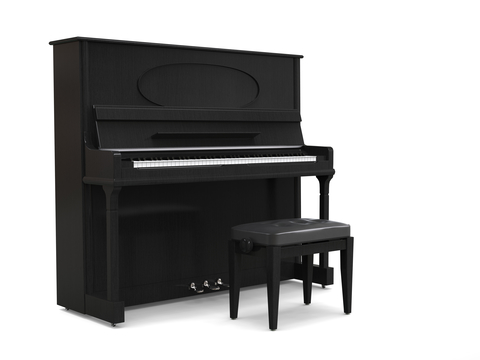(Note: I am not sponsored by the brands mentioned. These are my genuine opinions.)
To those who are here, you probably ask what to do if you don’t have a piano? Unfortunately, I cannot give lessons to those who don’t have a working piano. However, I can give a few pointers on what instrument to get depending on your goals and budget. Prices of recommended instruments are official MSRP from manufacturer’s website. You can expect to find lower price at many instrument stores.
If needed, I can also be contacted to accompany you.
General Tips
- Get a piano/keyboard with at least 88 weighted keys.
- A recommended budget should at least be $500 for digital, $4000 for an acoustic unless used.
- A good digital piano is better than a worn, out-of-tune acoustic piano.
- Know that MIDI controllers while they look similar to a keyboard can’t produce sound on its own.
- Check if benches are included in final price.
- Most importantly, go out and try the thing!
Acoustic Piano (Upright or Grand)
Acoustic pianos are intricate works of wood and brass engineering. The sound produced has a rich range in dynamics and tone colors while giving a clear feel of responsiveness. This is not something that not even the latest electric pianos could only get close to perfectly replicating. Since the keys are made from wood, there is a fair amount of resistance in pressing them. This helps build finger strength and sensitivity in the long run. This is most helpful in building a musician’s sense of phrasing and dynamic control. For the serious piano student, there is no better alternative.
That being said, they tend to be the priciest and space-consuming when compared to other kinds. There are additional costs for annual tuning and humidity control to ensure the piano will last for decades. If you’re unsure about committing your hard-earned money, some stores have a rental program. That way, you can know what it’s like and then decide later whether you want to spend the money.
Recommended Brands:
- Essex
- Boston
- Yamaha
- Kawai
- Steinway and Sons (for serious students)
Digital Piano
Digital pianos are much lighter, take up less space, and some could have headphones plugged in so students could practice without bothering anyone nearby. While a digital piano won’t give a student the full learning experience, a good quality digital piano would make a fair substitute. If you decide to buy a digital piano, I cannot stress more how important it is to buy a piano with weighted keys.
Recommended Models:
- Yamaha Arius YDP-143 ($1,499)
- Yamaha Arius YDP-163 ($1,999)
- Yamaha Arius YDP-184 ($2,799)
Electric Keyboard
Electric pianos are the most affordable and easiest to transport. This is because unlike the previous two types of pianos, keyboards don’t have a body and must be put on a stand or flat surface to use. The big advantages of an electric keyboard are the recording functions, various instrument voices, being able to connect to larger sound systems. I have recommended some keyboard models below. They all have 88-weighted keys and has a good sound quality when compared to a digital piano.
Of course, there are more cheaper options out there. However, many keyboards are known to have plastic, hollow keys that yield a dull and static sound quality. They are the least rewarding and least helpful in developing a student’s technique and musicianship. If budget is the main concern, I will suggest purchasing a used 88 weighted key instrument.
Recommended Model
- Yamaha P-115 ($599)
- Casio CDP-240 ($449)

